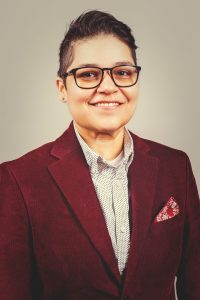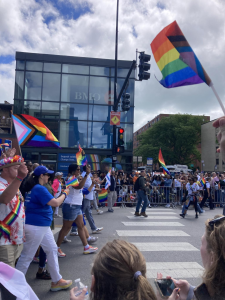NEIU Presidential search narrows
January 30, 2018
NEIU narrowed its search for a new president to four finalists after candidates spoke with officials, staff, and students. The finalists are Gloria J. Gibson, Maria Guajardo, Sukhwant Jhaj and Carlos Medina.
The new president will step into the position left vacant since Fall of 2016, after the retirement of Sharon Hahs, who was the NEIU president for ten years.
Hahs is mostly known for the major developments and expansions of NEIU’s campus, including the opening of the university’s El Centro campus on Avondale Avenue and the residence hall on the main campus, the Nest.
Richard Helldobler has served as NEIU’s interim president since Hahs’ departure.
Helldobler faced troubles from the Illinois state budget stalemate which lasted for two years. Uncertainty grew to whether or not NEIU would receive a budget to continue the school year.
The school was forced to enact a series of furloughs and layoffs in order to keep its doors opened.
A budget was enacted when state officials vetoed Governor Rauner’s vote. However, is it unclear when the school will receive the next budget.
However, further expansion plans have been procured when the university gained the land on Bryn Mawr Avenue to expand student housing.
As of now, plans for constructing either a second “wing” to the Nest or another residence hall is still being debated among school officials.
A special meeting was held by the Board of Trustees to consider and review each candidate on Jan. 23. The President Search Advisory Council will convene on Feb. 7 to receive university feedback on the candidates gathered during the candidates’ visits, according to Chief of Marketing and Communications Officer Mike Dizon.
The Board will consider additional information at its Feb. 8 meeting.
Further concerns from the public were brought up to the Board during the comment session in the meeting on Jan. 23.
These concerns were about the amount of time the university had to fully review each candidate. Some of the candidates did not receive enough time to get feedback from the community and university, as opposed to the 24-hour time frame that is usually given to candidates.





